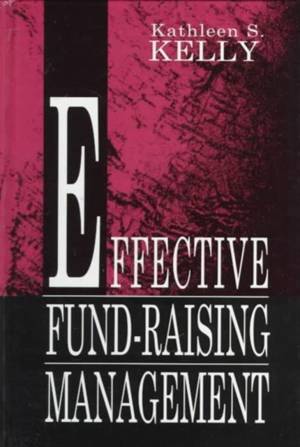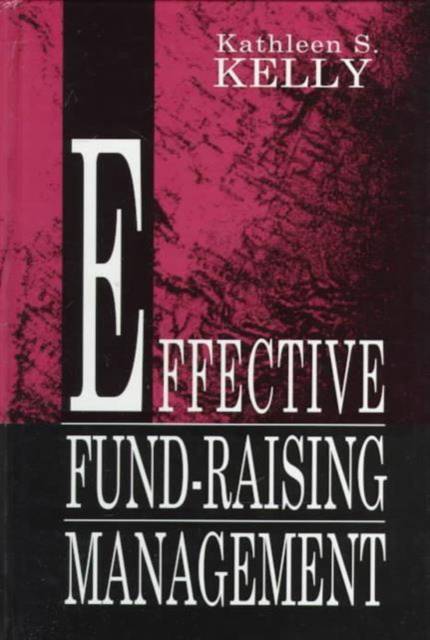
- Afhalen na 1 uur in een winkel met voorraad
- Gratis thuislevering in België vanaf € 30
- Ruim aanbod met 7 miljoen producten
- Afhalen na 1 uur in een winkel met voorraad
- Gratis thuislevering in België vanaf € 30
- Ruim aanbod met 7 miljoen producten
Omschrijving
In a ground-breaking departure from existing works, almost all of which are how-to manuals based on anecdotal evidence, this is the first academic textbook on fund raising. By integrating practical knowledge with social science theory and research, it presents a comprehensive approach to the function, from its legal and ethical principles to the managerial process by which gifts are raised. Territory previously uncharted in the literature is explored, such as the historical and organizational contexts of contemporary practice. Explanations of programs, techniques, and publics introduce a new system for understanding fund raising's major concepts. Unlike efforts in established fields, most of the material represents original scholarship undertaken to produce a first-time text.
The book's main purpose is to teach students about fund raising--a high-demand, high-paying occupation that will continue to expand into the 21st century as the need for trained practitioners exceeds the supply. During the last decade, fund-raising education moved into the formal classroom and away from an apprenticeship tradition of senior practitioners mentoring newcomers. Yet until now, there has not been a textbook to support this evolving professionalism. Faculty have been reluctant to define fund raising as an academic subject in the absence of a theory-based teaching resource, and courses usually have been assigned to part-time instructors hired from the practice. This textbook addresses the void. It is designed for graduate and upper-level undergraduate courses dealing with fund raising as a primary or secondary subject. Among its features, each chapter points out research gaps and opportunities--such as problems and theories for master's theses and doctoral dissertations--and ends with a list of suggested readings. The text is appropriate for the diverse academic areas in which fund raising, nonprofit management, and philanthropy are taught, including public administration, management, arts and humanities, education, social work, economics, and sociology. Because of its public relations orientation, it is particularly suited for courses offered in that discipline. Additional audiences are practitioners enrolled in professional development programs; CEOs, trustees, and others interested in self-study; and scholars who need serious literature on the subject.Specificaties
Betrokkenen
- Auteur(s):
- Uitgeverij:
Inhoud
- Aantal bladzijden:
- 680
- Taal:
- Engels
- Reeks:
Eigenschappen
- Productcode (EAN):
- 9780805813210
- Verschijningsdatum:
- 1/11/1997
- Uitvoering:
- Hardcover
- Formaat:
- Genaaid
- Afmetingen:
- 168 mm x 240 mm
- Gewicht:
- 1260 g

Alleen bij Standaard Boekhandel
Beoordelingen
We publiceren alleen reviews die voldoen aan de voorwaarden voor reviews. Bekijk onze voorwaarden voor reviews.











